COVID-19’s Consumer Health Care Behaviors: Telehealth, Trauma, and Trust, via PwC
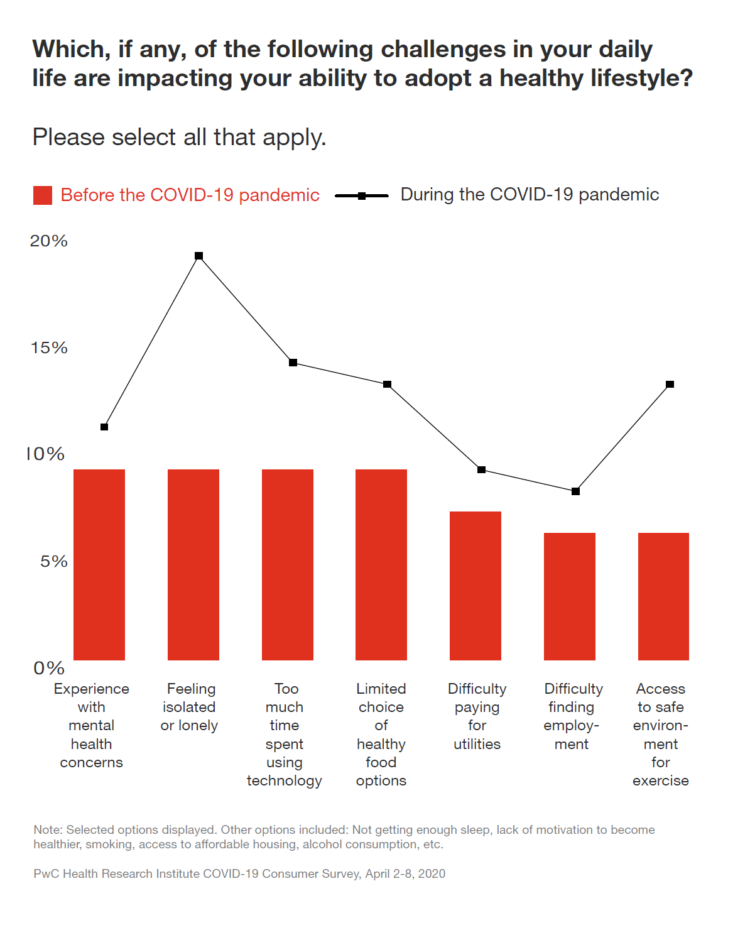
In a matter of several weeks, people living in the U.S. have endured massive personal social, emotional, physical and fiscal disruption due to the COVID-19 pandemic. State mandates to shelter at home, the adoption of wearing face masks and covers in public, and re-making dining tables and dens into home-working spaces for kids in school or parents telecommuting, American homes have morphed into petri dishes of people undergoing dramatic changes in a very short time. A new report from PwC looks at peoples’ changes in health behaviors in the first two months of the pandemic, asking whether these changes will
“Everyday Life” Factors Into Our Health Risks for COVID-19, Welltok Explains
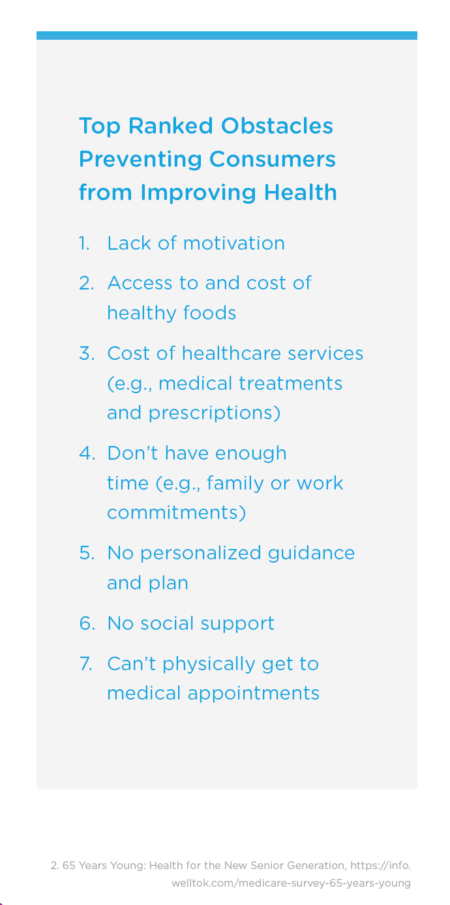
Everyday factors can make a big difference in a person’s current and future health risks and needs, we’re learning in the COVID-19 pandemic, detailed in a new Welltok research report, Social Determinants of Health Matter: Voice of the Consumer. “The current public health crisis underscores the importance of leveraging SDOH as a way to effectively provide timely, relevant support that is truly going to make a difference for people’s total wellbeing,” Bob Fabbio, Welltok’s CEO, explained in a press release. “It’s not only about predicting high-risk individuals, but also those that may be feeling isolated, financially insecure or emotionally unstable that
How COVID-19 is Hurting Americans’ Home Economics in 2020
Beyond the physical and clinical aspects of the COVID-19 pandemic are financial hits that people are taking in the shutdown of large parts of the U.S. economy, impacting jobs, wages, and health insurance rolls. Some 1 in 2 people in the U.S. who have had their income impacted by the coronavirus have either fallen behind in paying off credit card debt or other bills, had problems paying for utilities, have lagged in paying for housing (rent or mortgage), been challenged paying for food, or other out-of-pocket costs. We learn about these fiscal hits from COVID-10 from the latest Health Tracking Poll
COVID-19 Reveals Urgent Need for Universal Mental Health Care
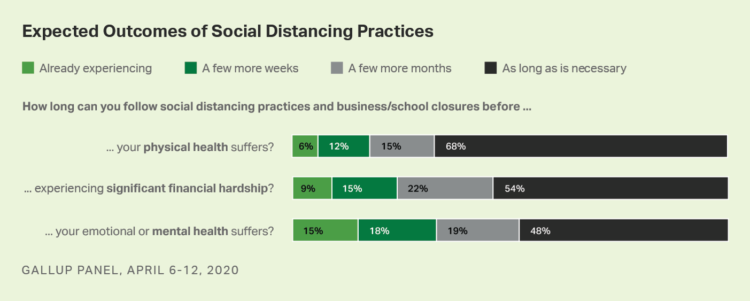
The coronavirus pandemic has dramatically disrupted every aspect of life for everyday people, ratcheting up stress across all families: The mandate to #StayHome, being physically distanced from work colleagues, beloved family and friends, and our community touchpoints The fear and risk-management of contracting the COVID-19 virus, for ourselves and our families The economic shock or either losing our jobs, seeing our savings eroding from 401(k) plans, losing our health insurance, or all of the above If we’ve kept our jobs in the pandemic, the novel work environment at-home — with children afoot, some of whom are now forced to be
Health, Wealth & COVID-19 – My Conversation with Jeanne Pinder & Carium, in Charts
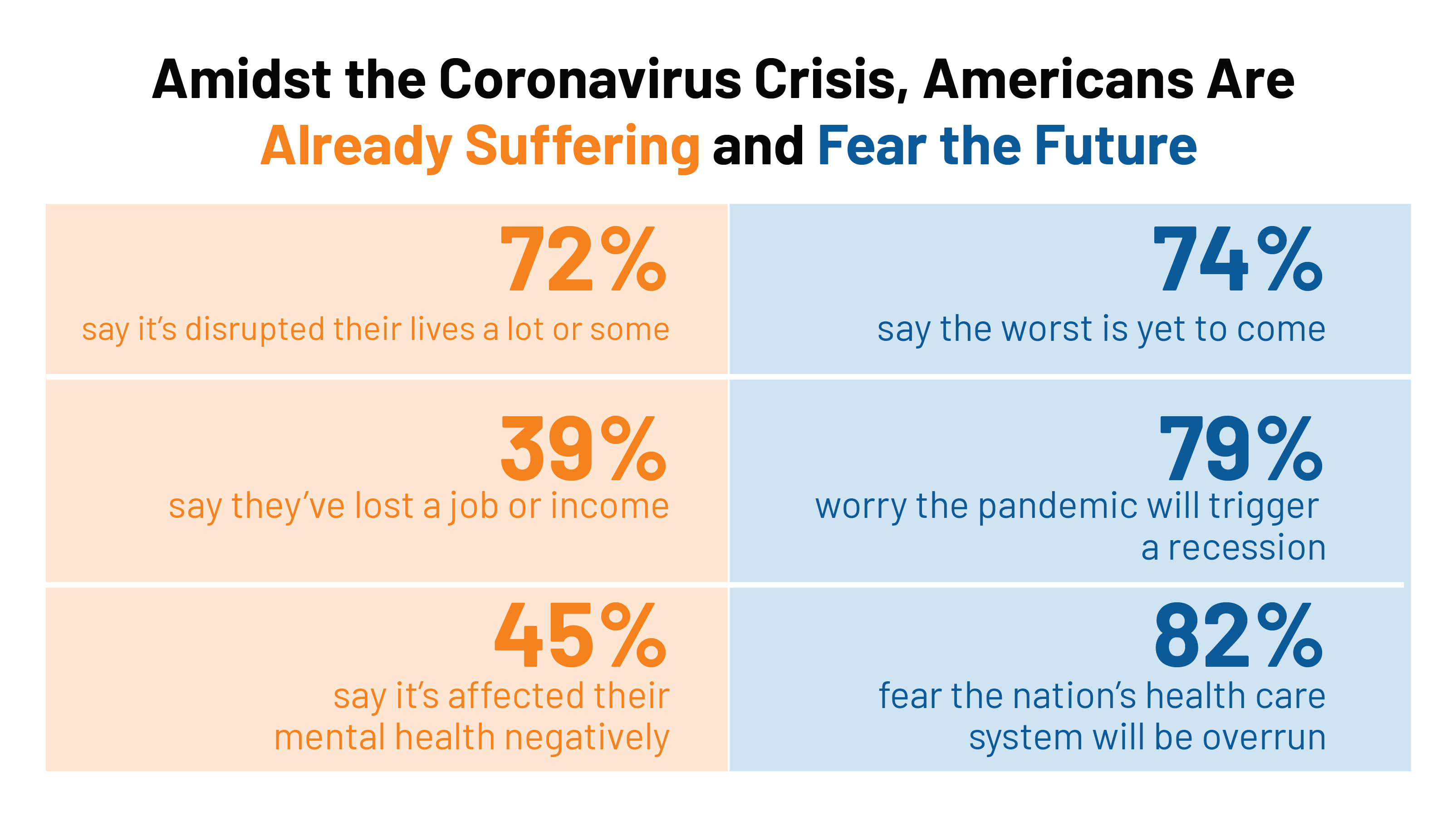
The coronavirus pandemic is dramatically impacting and re-shaping our health and wealth, simultaneously. Today, I’ll be brainstorming this convergence in a “collaborative health conversation” hosted by Carium’s Health IRL series. Here’s a link to the event. Jeanne founded ClearHealthCosts nearly ten years ago, having worked as a journalist with the New York Times and other media. She began to build a network of other journalists, each a node in a network to crowdsource readers’-patients’ medical bills in local markets. Jeanne started in the NYC metro and expanded, one node at a time and through many sources of funding from not-for-profits/foundations,
Healthy Thinking: Inside the Mind of the COVID-19 Consumer
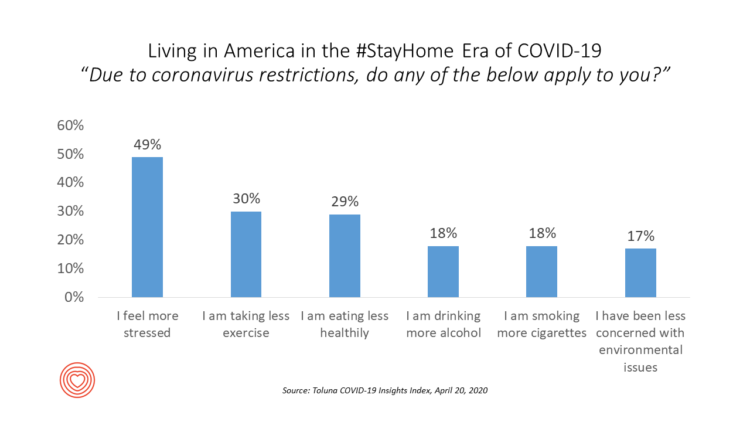
Stress is up, smoking increasing, drinking more alcohol….Americans are tapping into a variety of coping mechanisms in the coronavirus outbreak, with health on their collective minds. Toluna and Harris Interactive are collaborating on the COVID-19 Barometer, publishing biweekly data on consumers’ views on the coronavirus pandemic. The data here are a snapshot of consumers taken through the Toluna-Harris poll conducted among 1,047 U.S. adults between 9-20 April 2020. The first chart shows various life-flows Americans have adopted in April, all risk factors impacting peoples’ overall health status and mental well-being. There were demographic differences across these factors: more women felt
The Patient-as-Payor in the Coronavirus Pandemic
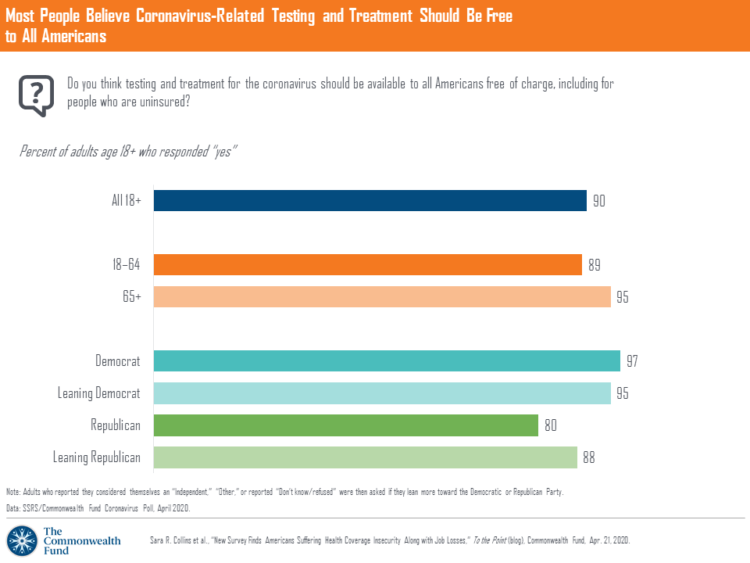
One in three working age people in the U.S. lost their job as a response to the COVID-19 pandemic, some of whom lost health insurance and others anxious their health coverage will be threatened, revealed in a survey from The Commonwealth Fund published on April 21, 2020. 2 in 5 people in America who are dealing with job insecurity are also health insurance insecure, the study found, as shown in the pie chart. The Commonwealth Fund commissioned the poll among 1,001 U.S. adults 18 to 64 years of age between 8-13 April 2020. Nearly all Americans believe the dots of
In the U.S., the Spread of Infectious Disease Now Seen As Bigger Threat Than Terrorism – Pew
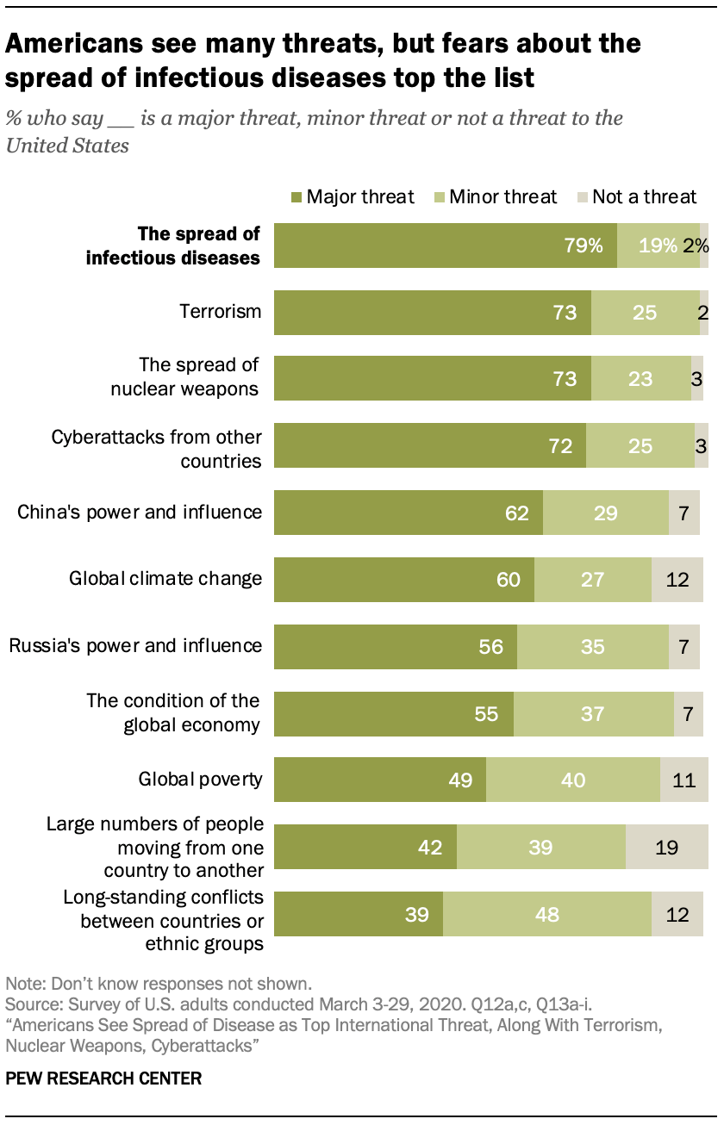
The spread of infectious disease is the new terrorism in the eyes of Americans. The most significant major threat to the U.S. is infectious disease, four in five Americans said in March 2020, closely followed by terrorism (in general), the spread of nuclear weapons, and cyberattacks from other countries. For the study, the Pew Research Center commissioned a telephone survey conducted among 1,000 U.S. adults in March 2020. Large majorities of people are also highly concerned about China’s growing power and influence, global climate change, Russia’s power and influence, the condition of the global economy, and global poverty. The percent
Americans’ Sense of Well-Being Falls to Great Recession Levels, Gallup Finds
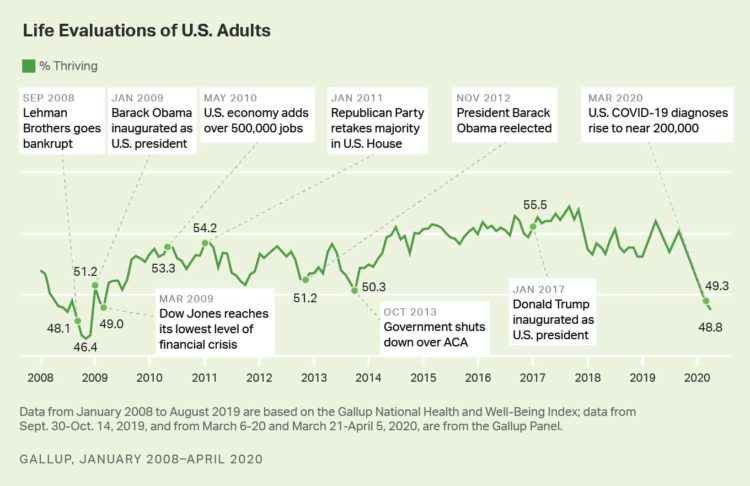
It’s déjà vu all over again for Americans’ well-being: we haven’t felt this low since the advent of the Great Recession that hit our well-well-being hard in December 2008. As COVID-19 diagnoses reached 200,000 in the U.S. in April 2020, Gallup gauged that barely 1 in 2 people felt they were thriving. In the past 12 years, the percent of Americans feeling they were thriving hit a peak in 2018, as the life evaluations line graph illustrates. Gallup polled over 20,000 U.S. adults in late March into early April 2020 to explore Americans’ self-evaluations of their well-being. FYI, Gallup asks consumers
The Epidemic After the Pandemic is Stress and Anxiety in America – Learning From Ginger
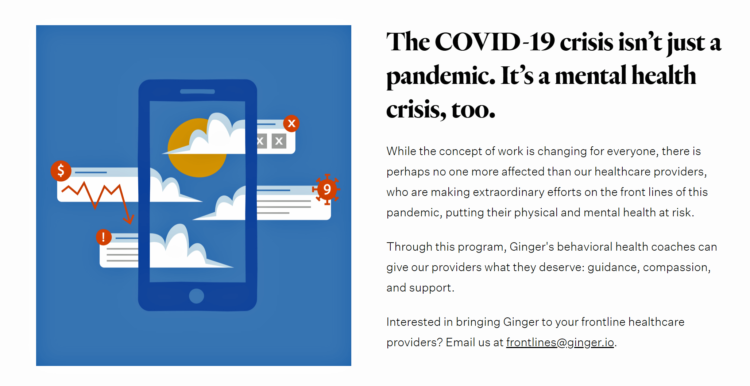
“U.S. workers were stressed before COVID-19; now, stress levels are through the roof,” based on data analyzed by Ginger, the digital behavioral health innovator, asserting this major mental health headline in its latest press release. Working Americans were becoming increasingly stressed, distressed, and anxious in February 2020, when Ginger fielded this study. Key data points from their analysis of U.S. workers’ feelings about the COVID-19 pandemic included: 7 in 10 working people said this was the most stressful time of their working lives 7 in 10 workers believed fellow employees in their companies were significantly less productive due to stress
The Unsurprising Surprise of Social Determinants in COVID-19 Mortality
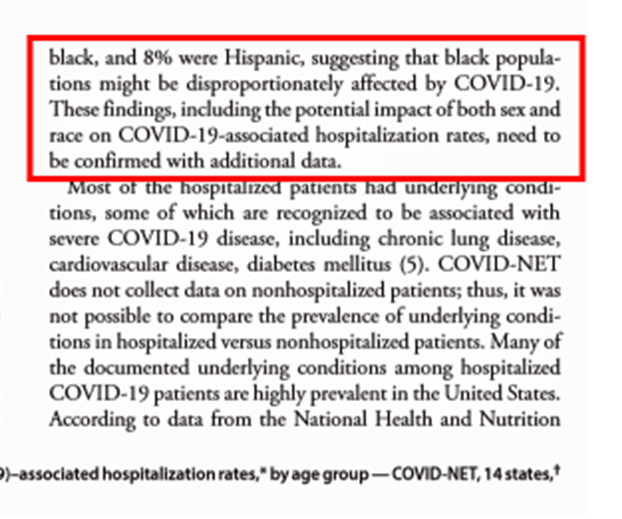
“Covid-19 exposes America’s racial health gap,” asserts The Economist, the weekly news magazine based in London, UK, in an advanced essay dated 11 April 2020. The subtitle of the piece: “African-Americans appear more vulnerable to the virus.” The phrase, “your ZIP code is more important than your genetic code” has become the common mantra for public health people communicating the concept of the social determinants of health: those factors outside of medical services that shape peoples’ overall health and well-being. Two days ago, the Centers for Disease Control (CDC) published data that showed African-Americans were dying from complications of the
The Grocery Store as Social, Health — and Sickness — Destination
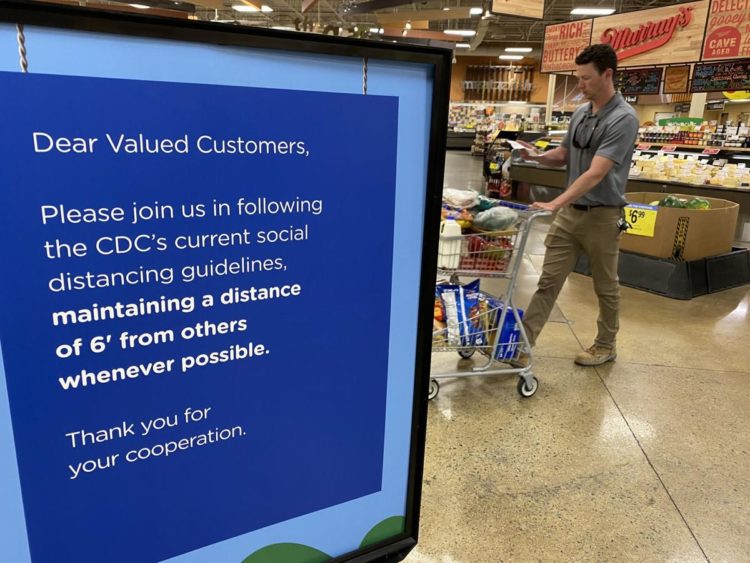
On Monday, 6th April 2020, the Prime Minister of New Zealand, Jacinda Ardern, has determined that the Easter Bunny and the Tooth Fairy are essential workers in our age of the coronavirus pandemic. The PM has posted an Easter egg coloring project on her Facebook page to support children (and people like me who like to color) in the #StayHome era. In the U.S., the day before on Sunday 7th April, Dr. Deborah Birx advised Americans that, “The next two weeks are extraordinarily important. This is the moment to not be going to the grocery store, not going to the
The Coronavirus Impact on American Life, Part 2 – Our Mental Health
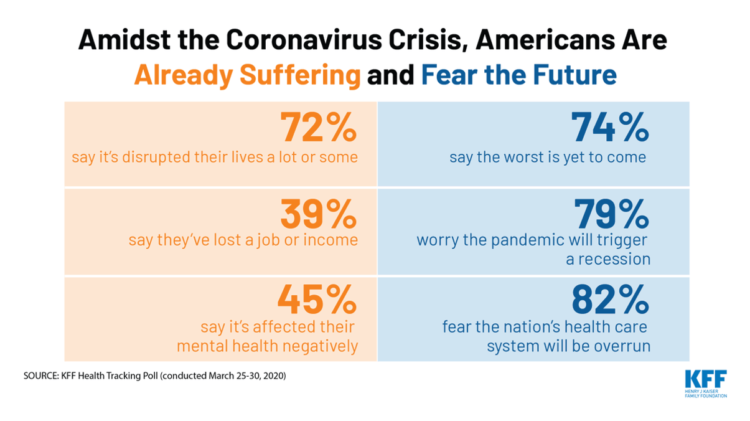
As the coronavirus pandemic’s curve of infected Americans ratchets up in the U.S., people are seeking comfort from listening to Dolly Parton’s bedtime stories, crushing on Dr. Anthony Fauci’s science-wrapped-with-empathy, and streaming the Tiger King on Netflix. These and other self-care tactics are taking hold in the U.S. as most people are “social distancing” or sheltering in place, based on numbers from the early April 2020 Kaiser Family Foundation health tracking poll on the impact of the coronavirus on American life. While the collective practice of #StayHome to #FlattenTheCurve is the best-practice advice from the science leaders at CDC, the NIAID
The Coronavirus Impact on American Life, Part 1 – Life Disrupted, and Money Concerns
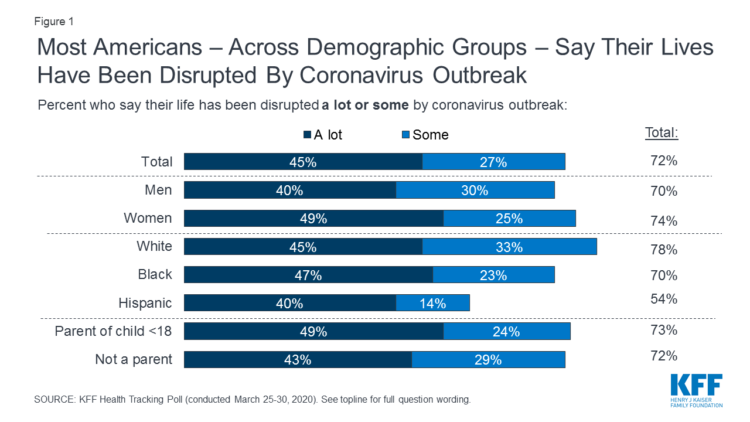
Nearly 3 in 4 Americans see their lives disrupted by the coronavirus pandemic, according to the early April Kaiser Family Foundation Health Tracking Poll. This feeling holds true across most demographic factors: among both parents and people without children; men and women alike; white folks as well as people of color (although fewer people identifying as Hispanic, still a majority). There are partisan differences, however, in terms of who perceives a life-disruption due to COVID-19: 76% of Democrats believe this, 72% of Independents, and 70% of Republicans. Interestingly, only 30% of Republicans felt this way in March 2020, more than
Art Therapy in the COVID-19 Era: Inspirations Abound from Munch to Dutch Masters and Toilet Tissue
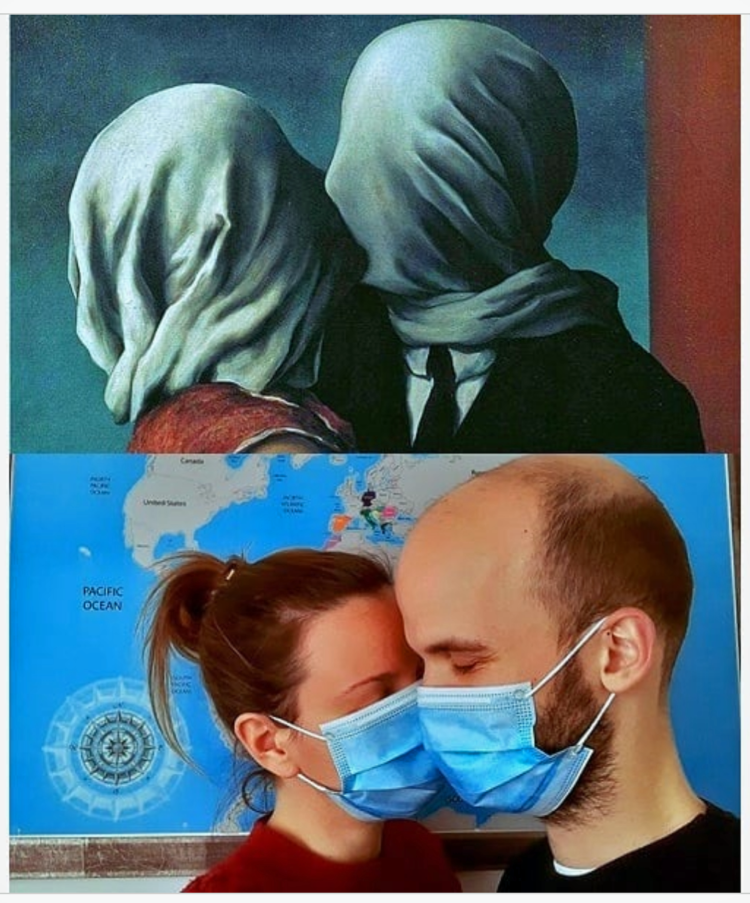
Florence Nightingale, the founder of modern nursing, said, “Variety of form and brilliancy of color in the object presented to patients are an actual means of recovery.” We all need some #ArtTherapy in this #StayHome COVID-19 era, #AloneTogether to #FlattenTheCurve. Yes, I’ve been spending too much time connecting on social media. Can you tell I’m in dire need of some art therapy? #Truth. The coronavirus pandemic, like all desperate times, is inspiring amazing creativity across all media and channels. Today I’m obsessed with several art projects that delight me. My fall-outta-my-seat art therapy moment this week came from the Getty
How the Coronavirus is Reshaping Consumer Trust – The Edelman Trust Barometer Lens and Health Impacts
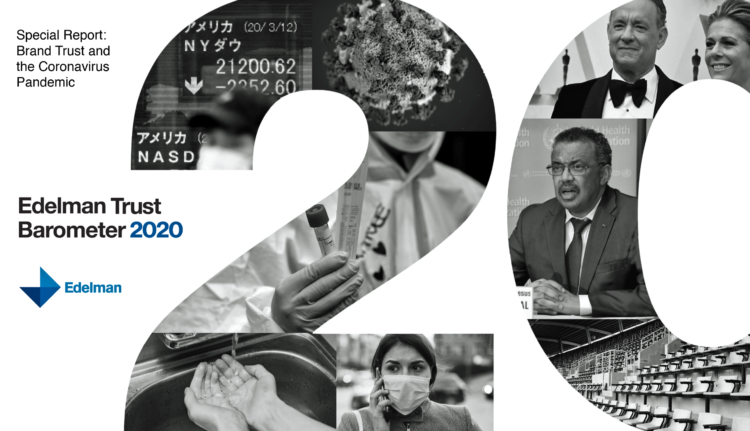
U.S. consumers were re-shapen by the 2008 Recession in two key ways: people took on more self-service DIY daily life-flows, seeking self-sufficiency and less dependence on institutions; and, consumers became more value-sensitive both in terms of financial value and personal values. As Americans confront the clinical and fiscal realities of the coronavirus in the U.S., the trust people feel with organizations, brands and information sources is shifting, a special report from Edelman explains. In Brand Trust and the Coronavirus Pandemic, Edelman focuses its trust lens on the pandemic and consumers’ shaken confidence in business and government institutions. These findings have





 I'm in amazing company here with other #digitalhealth innovators, thinkers and doers. Thank you to Cristian Cortez Fernandez and Zallud for this recognition; I'm grateful.
I'm in amazing company here with other #digitalhealth innovators, thinkers and doers. Thank you to Cristian Cortez Fernandez and Zallud for this recognition; I'm grateful. Jane was named as a member of the AHIP 2024 Advisory Board, joining some valued colleagues to prepare for the challenges and opportunities facing health plans, systems, and other industry stakeholders.
Jane was named as a member of the AHIP 2024 Advisory Board, joining some valued colleagues to prepare for the challenges and opportunities facing health plans, systems, and other industry stakeholders.  Join Jane at AHIP's annual meeting in Las Vegas: I'll be speaking, moderating a panel, and providing thought leadership on health consumers and bolstering equity, empowerment, and self-care.
Join Jane at AHIP's annual meeting in Las Vegas: I'll be speaking, moderating a panel, and providing thought leadership on health consumers and bolstering equity, empowerment, and self-care.